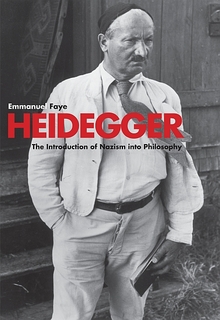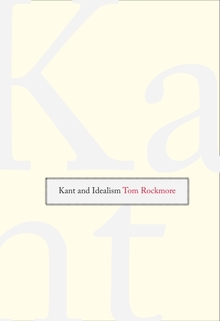Heidegger
WARNING
You are viewing an older version of the Yalebooks website. Please visit out new website with more updated information and a better user experience: https://www.yalebooks.com
The Introduction of Nazism into Philosophy in Light of the Unpublished Seminars of 1933-1935
Emmanuel Faye; Translated by Michael B. Smith; Foreword by Tom Rockmore
Out of Print
In the most comprehensive examination to date of Heidegger’s Nazism, Emmanuel Faye draws on previously unavailable materials to paint a damning picture of Nazism’s influence on the philosopher’s thought and politics.
In this provocative book, Faye uses excerpts from unpublished seminars to show that Heidegger’s philosophical writings are fatally compromised by an adherence to National Socialist ideas. In other documents, Faye finds expressions of racism and exterminatory anti-Semitism.
Faye disputes the view of Heidegger as a naïve, temporarily disoriented academician and instead shows him to have been a self-appointed “spiritual guide” for Nazism whose intentionality was clear. Contrary to what some have written, Heidegger’s Nazism became even more radical after 1935, as Faye demonstrates. He revisits Heidegger’s masterwork, Being and Time, and concludes that in it Heidegger does not present a philosophy of individual existence but rather a doctrine of radical self-sacrifice, where individualization is allowed only for the purpose of heroism in warfare. Faye’s book was highly controversial when originally published in France in 2005. Now available in Michael B. Smith’s fluid English translation, it is bound to awaken controversy in the English-speaking world.
“Faye’s reading of Heidegger’s philosophy is quite simply transformative. Through a meticulous perusal of new sources—letters, heretofore unpublished seminars and lecture courses—he demonstrates that, during the 1920s and 1930s, right-wing ideological concerns were absolutely central to Heidegger’s Existenzphilosophie. Upon completing Faye’s study, it will be impossible to read Heidegger again naively, i.e., in a narrowly text-immanent manner.” — Richard Wolin, author of Heidegger’s Children and Distinguished Professor of History and Political Science, CUNY Graduate Center
"Emmanuel Faye incontestably shows that Heidegger’s Nazism was not fleeting, casual or accidental, but central to his philosophical enterprise. Faye’s book challenges us to draw the ethical consequences from this fact." — Robert E. Norton, University of Notre Dame
"By highlighting the links between Heidegger’s politics and his philosophy, and going where other experts have so manifestly been unprepared to go, Faye has done both history and philosophy a valuable service."—Martin Cohen, Times Higher Education
Publication Date: November 24, 2009
5 b/w illus.









